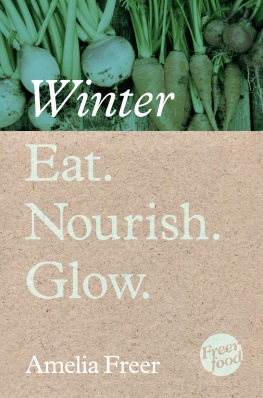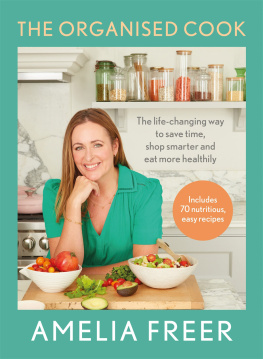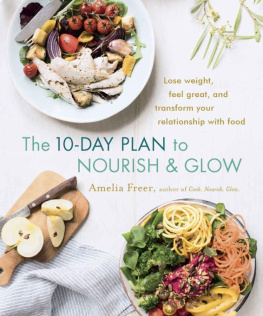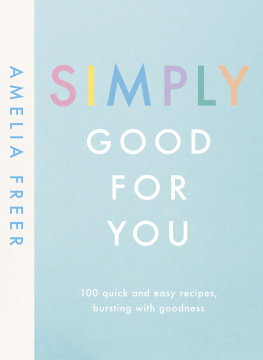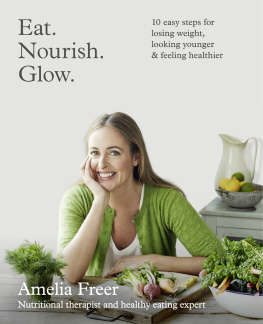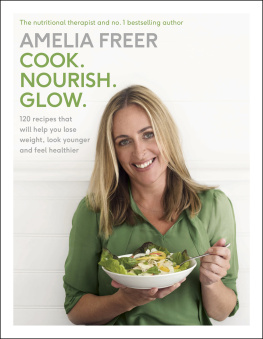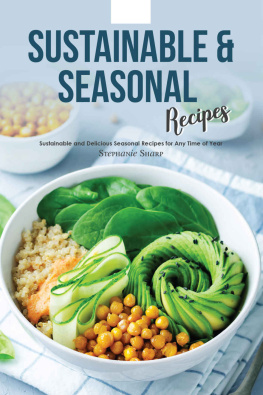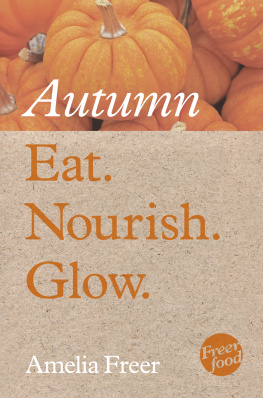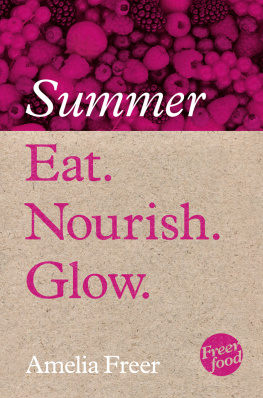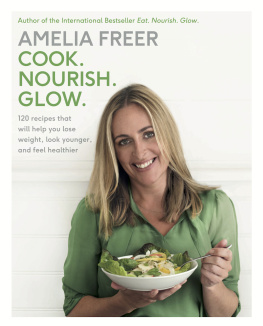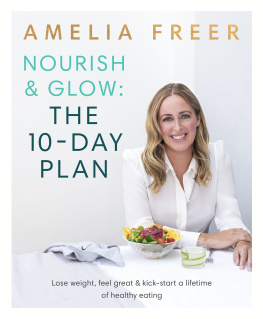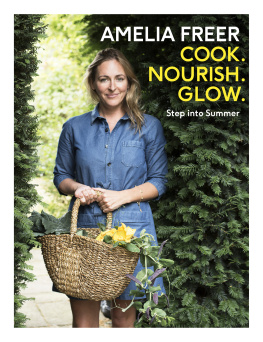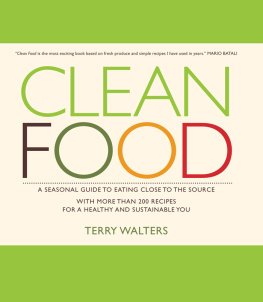Contents
These so-called merry months can often leave us feeling overweight, bloated and exhausted. The mere flicker of a Christmas light seems to make all our good intentions disappear. We eat canaps at every party we go to, accept every mince pie on offer, shun exercise because its cold and dark outside and think its perfectly acceptable to eat an entire box of chocolates because, Well, its Christmas, isnt it? We also kid ourselves that none of this really matters because we can cover any lumps, bumps and bloated tummies in baggy, woollen winter clothes. Ring any bells?
I get it, of course. After all, its a human instinct to hibernate, seek refuge, crave comfort, warmth and sleep during the darkest, coldest and wettest months of the year, but the reality doesnt quite work out like this. Rather, the merriment of Christmas and New Year festivities lure us away from our natural inclination to rest more, and instead we embark on an exhausting mix of late nights, sleep deprivation and over-indulgence. But it will all be OK, I hear you protest, because you have January, right? That standard month of dieting, detoxing and deprivation when you will batten down the hatches, undo all of the damage you have caused and lose all the weight you gained in time for spring.
Well, sorry for the tough love approach, but winter doesnt need to be, and shouldnt be, this predictable cycle every year. Instead of putting yourself through an exhausting round of bingeing and starving, lets approach the excesses of winter with a plan. Typically these excesses include alcohol, sugar, damaged fats, chemicals, toxins, drugs, as well as the natural deficiencies of winter, such as a lack of sunlight and vitamin D combined with a lack of exercise and nutrients. To think you can fix all that with a quick January juice cleanse or a faddy month-long diet is simply foolish.
We know that puppies are for life, not just for Christmas. Well, the same goes for our health! It should be considered all year round, and not just in January (or pre-holiday when we are worrying about bikinis). Its so easy to allow the pendulum to swing wildly from December to January, to go from over-indulging to detoxing in a matter of weeks. Its so easy to put our heads in the sand and say, Ill start eating better tomorrow as you eat more chocolate or pour yourself another glass of wine. Or I feel OK so I must be OK. Because this isnt a language our body speaks. Sure, our bodies are hard-wired to heal after they have been damaged, but we cant just switch on the button when we feel like it. How we live our life each day controls that switch how we think, how we move, what we eat and how we live.
The harsh truth is that illness does not develop the day we get a diagnosis. How we treat our bodies every single day has a drip-feed effect on what accumulates. Forget using the genetic or bad luck excuse science now confirms that we can switch on or switch off our genes by the lifestyle choices we make its called epigenetics. We have a choice, every single day. You can control that switch by the lifestyle decisions you make.
Having said all this, please dont think Im the new Scrooge of Christmas fun. Im not. What I am is the voice of reason and if Christmas binges followed by January extremes are a regular occurrence for you, then this year I encourage you to try a different approach. This doesnt mean you have to stay at home and not enjoy the fun, or say no to every tempting thing on offer. In my case, instead of setting myself up for failure by vowing not to eat chocolate or drink wine, I have flipped that by thinking, Im not going to get fat, bloated, exhausted and miserable this winter. I dont like feeling that way who does? So I will be sticking to my yoga practice and morning meditation and I will continue to eat wholesome, green, tasty, real, delicious home-cooked food. Im going to give myself a couple of occasions each week to enjoy red wine and nights out, but I will eat at home before I go out so I can say no to all the canaps. I will continue to shop, cook and plan my food for the week so I dont get sidetracked by convenience food when the fridge is empty and Im tired. I will continue to eat seasonal produce (more on this later) and I will say no to the mince pies, champagne and even all of the healthy, sugar-free and raw (read, still sugar) treats that are on offer everywhere I go. I will continue not to snack and keep my food real. Im not going to focus on what I cant eat, but on all the delicious things I can eat that will keep me healthy, bright and energised. I know how I want to start January, so thats my intention.
Im also going to do some gardening! Yes, I know our own gardens are probably a little frosted over or maybe a little waterlogged and definitely not abundant at this time of year, but there is another type of gardening that we can do, and its the most personal, precious and influential kind of gardening its with our microbiome. This is our own private colony of microorganisms that we live in. Yes, you read that right. We are, in fact, hosted by bacteria, which inhabit our bodies and outnumber our cells ten to one. They play a huge role in our health, good or bad. Our microbiomes are implicated in autoimmune diseases, such as arthritis, diabetes, coeliac disease, inflammatory bowel disease, multiple sclerosis and fibromyalgia, and are also considered to influence obesity. Yes, our microbiomes are very powerful indeed.
The food and lifestyle choices we make can determine how they behave and so it makes sense to think of our microbiome in gardening terms. First, we need to add some fertiliser thats organic fresh vegetables, fruits, berries, nuts and seeds. Then we need to plant the seeds thats probiotics (friendly bacteria), fermented foods, sauerkraut, kimchi, natural yoghurt and kefir. We then need some powerful weedkiller garlic, onions, horseradish and chilli. We need to avoid feeding any weeds with sugar, junk and processed foods, instead we need to water generously. By gardening our bodies (or our microbiome) we stand a much better chance of protecting and preserving our immune system which can help us fight the influx of cold, flu, respiratory disease and viruses that become so rampant during the winter months.
Despite viruses and bacteria thriving in warmer temperatures, this time of year brings more sniffs and sneezes than summer. When the morning air starts to nip, the cold and flu season begins. There are many reasons for this. One theory is because there is less sunlight and ultraviolet light, which deplete viruses, plus there is less vitamin D from the sun, which is a strong immune booster. When its cold outside we also spend more time indoors where we breathe in recycled air and other peoples viruses. Lastly, some studies suggest that cold weather suppresses the immune system, which makes us more vulnerable at this time of year. So this is even more reason to protect your health in winter by eating nourishing foods, rather than weakening it further by bingeing on sugar and avoiding exercise. In fact, fresh air and exercise are the perfect protection from colds and flu because they both help to strengthen the immune system.
Another good cold-fighting tip is consuming warming stocks and bone broths. Broth is a mineral-rich and nutrient-dense liquid made by boiling animal bones with vegetables and herbs. As well as boosting your immunity it can help digestion, joints, skin and hair, and its incredibly healing for the digestive lining. Simply take a large saucepan and add your bones (from fish, beef, chicken, lamb, etc.), pour in enough cold filtered water to cover and any vegetables you like, such as onions, carrots, celery and leeks. Lastly, add some herbs. Bring everything to the boil then reduce the heat and simmer for 612 hours the longer the better. Strain to remove all the bits of bones and vegetables and when cool store the broth in the fridge for up to five days, or freeze it. You can then add it to soups, gravy, stews or casseroles, or simply drink it.

